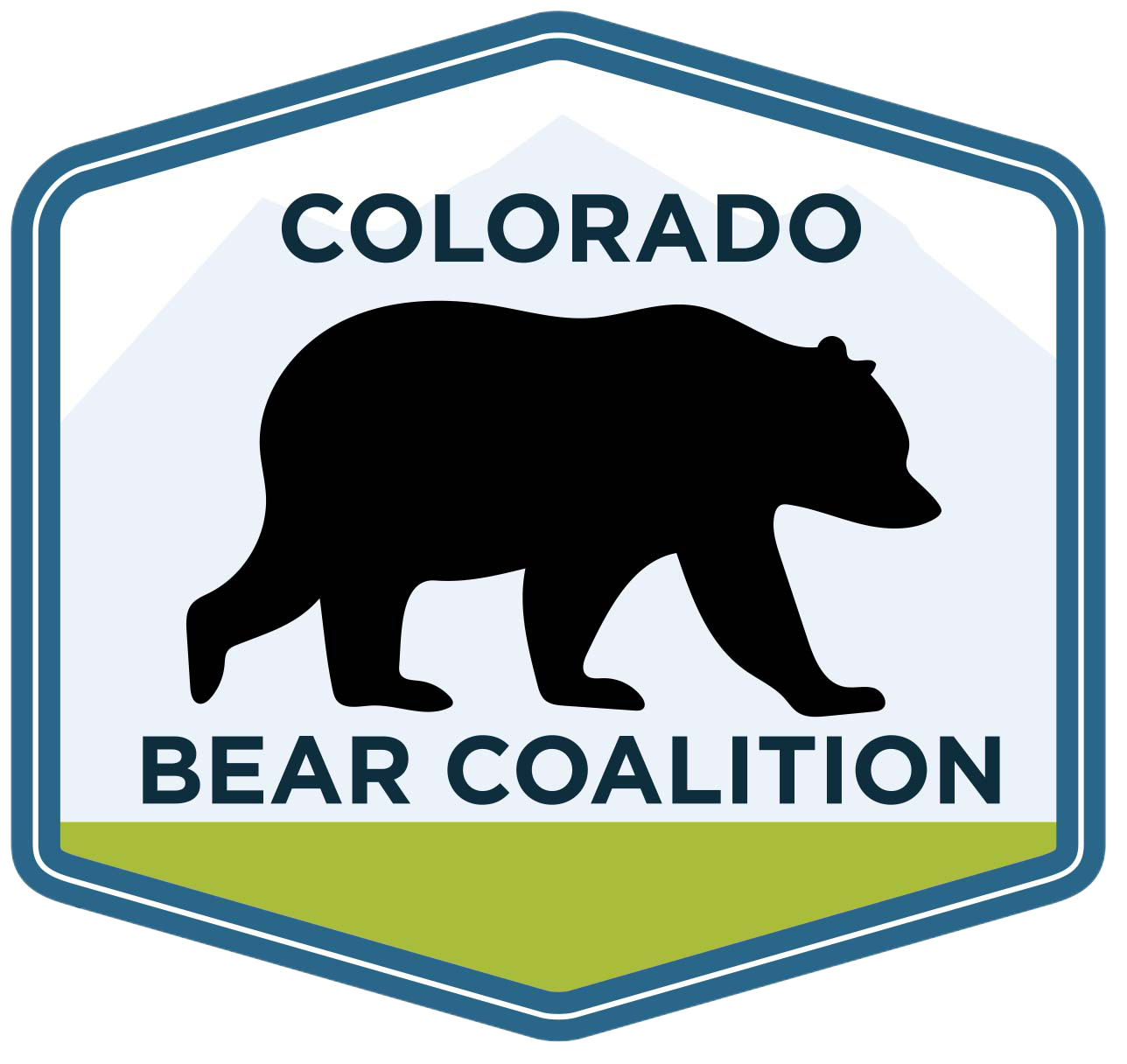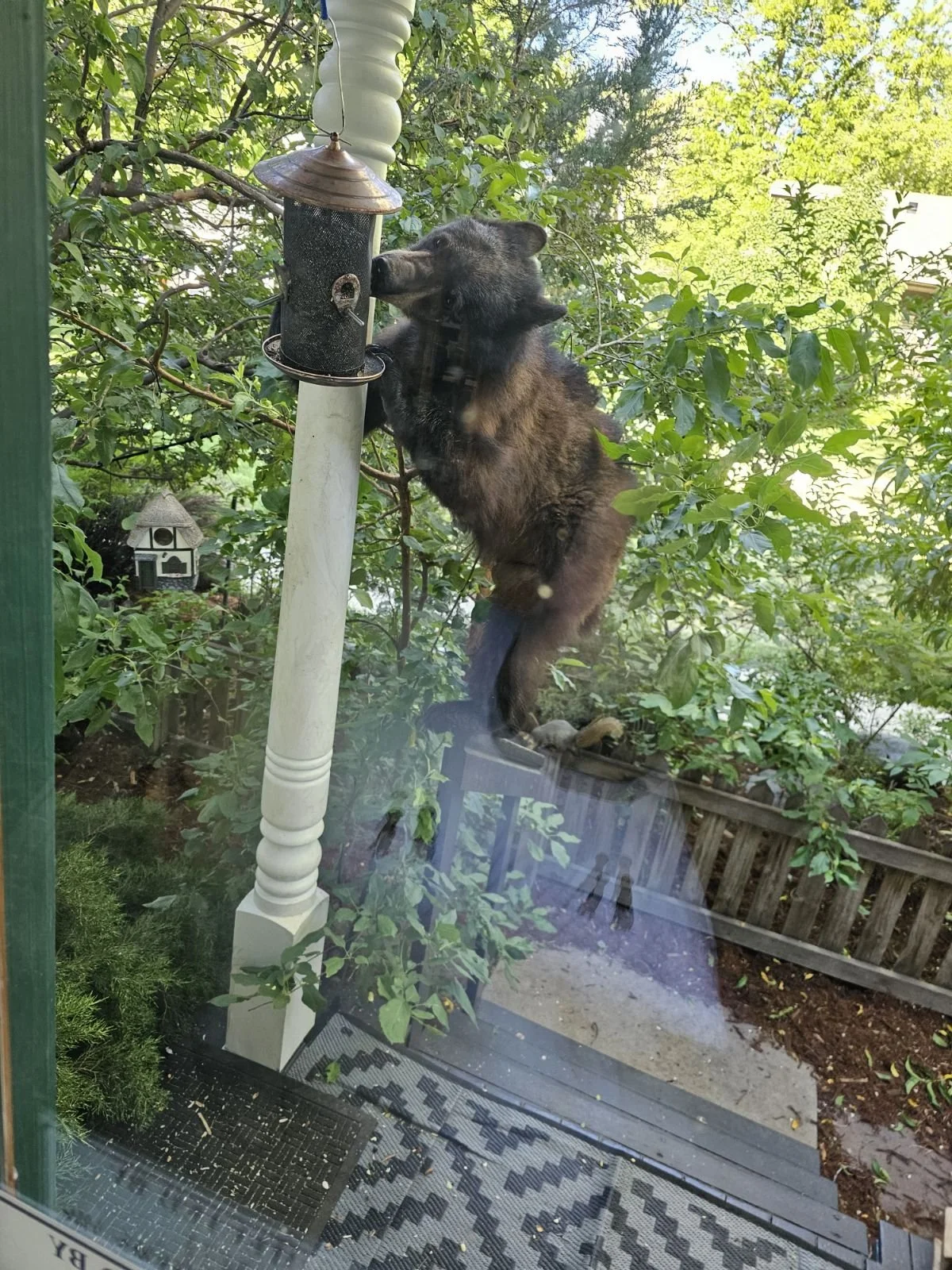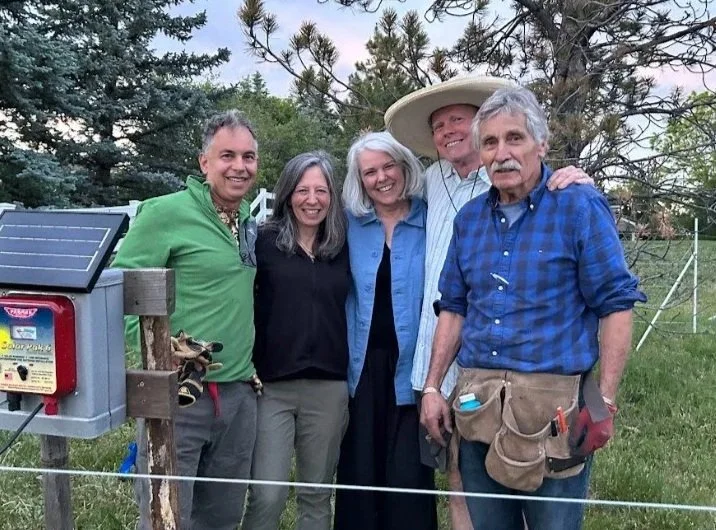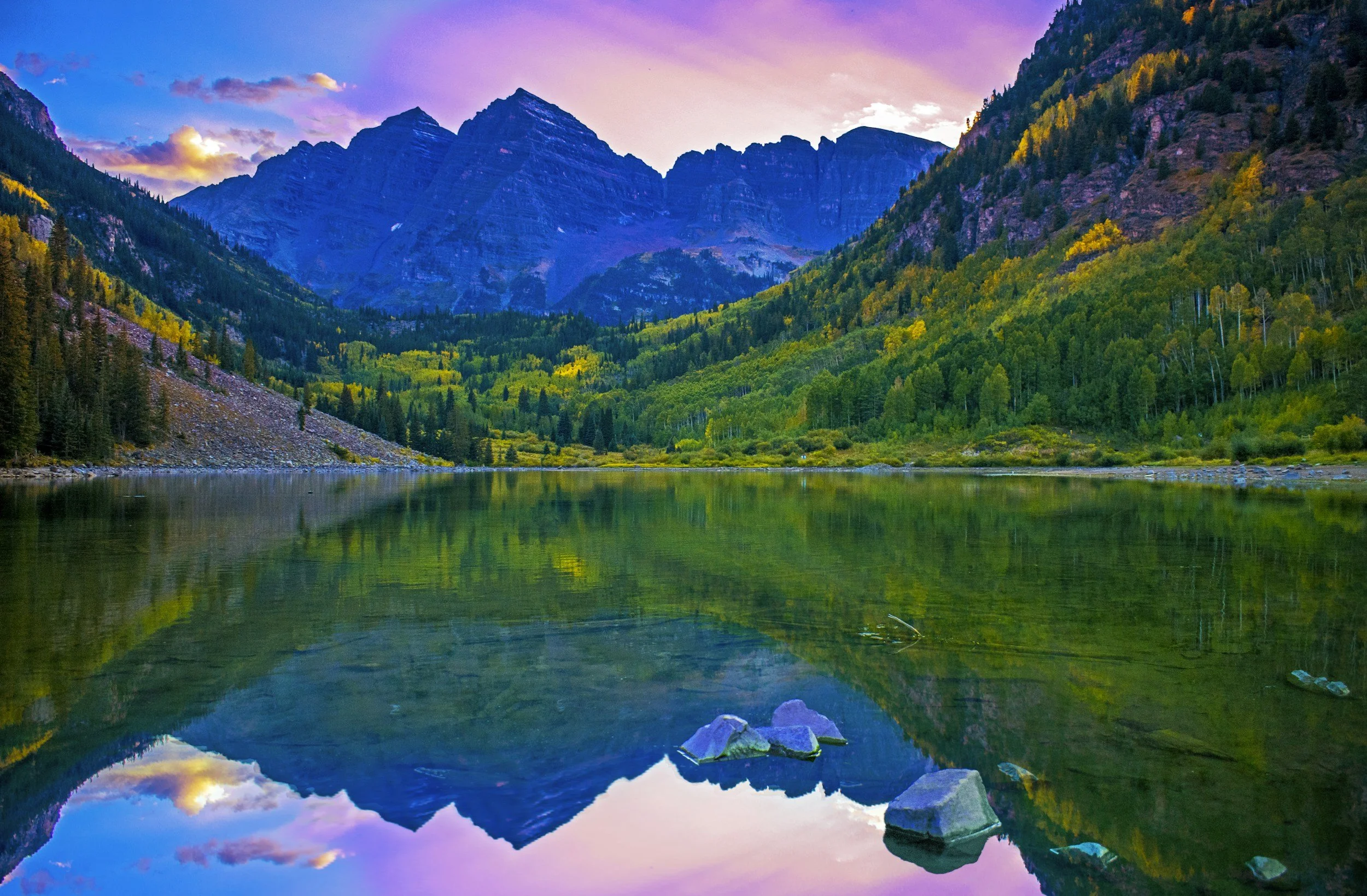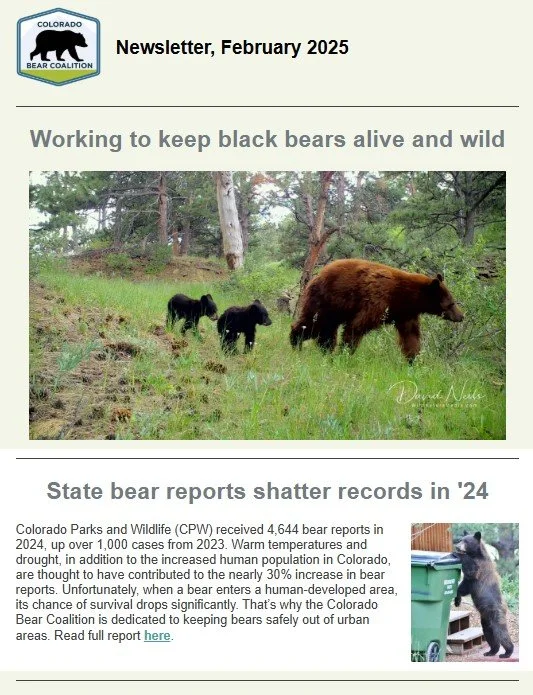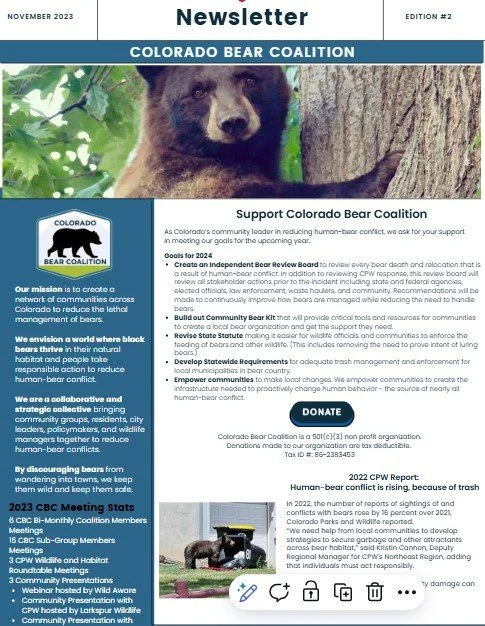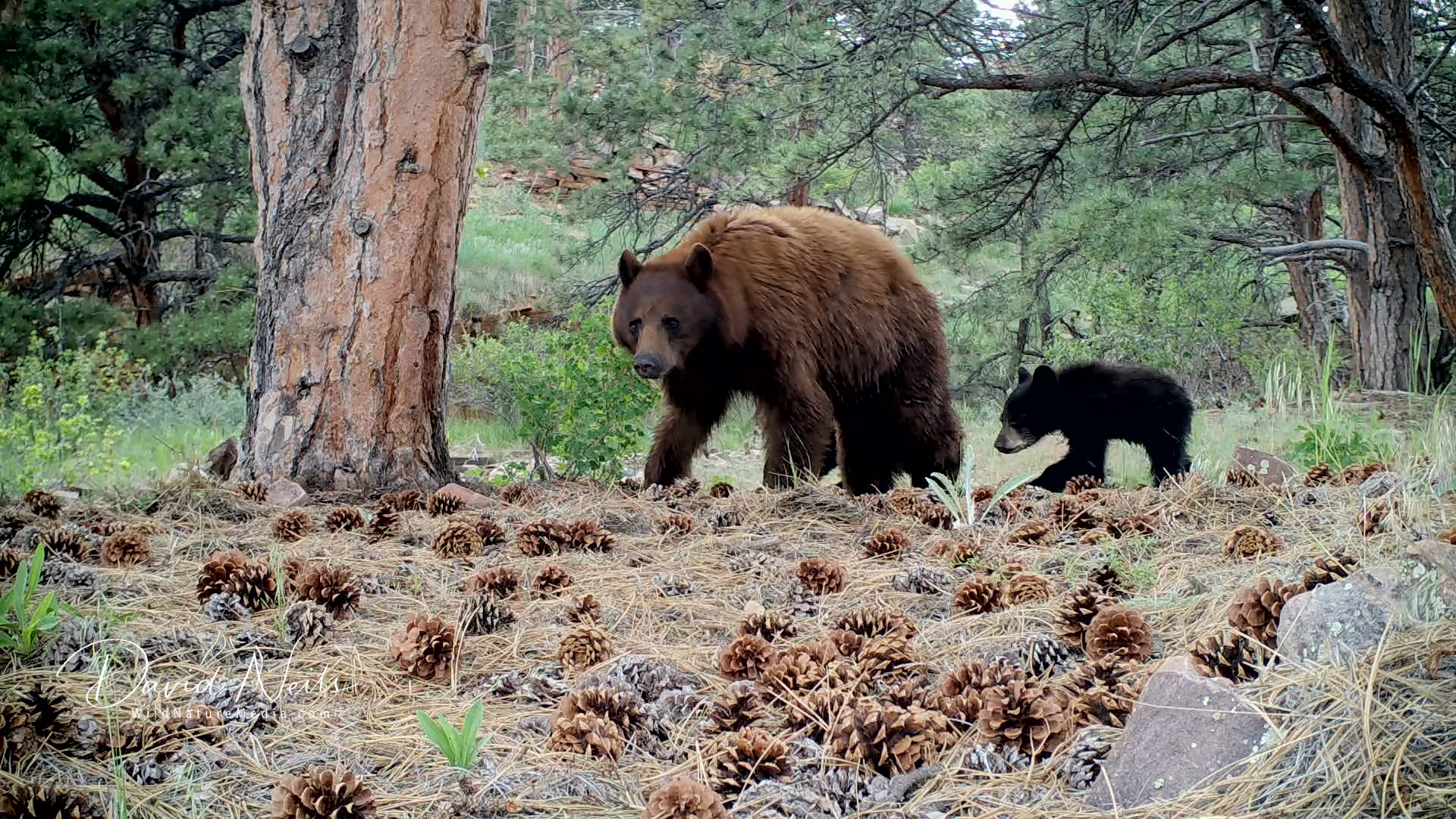
Protecting Black Bears
By addressing the human side of human-bear conflict, we prevent conflict before it begins .
CBC Newsletters
Human-Bear Conflict Reduction Grant
-

2025
Governor Polis and CPW announced the 2025 grant recipients.
August 27, 2025 -

2024
Governor Polis and CPW announced the 2024 grant recipients.
August 22, 2024 -

2023
Governor Polis and CPW announce the 2023 grant recipients.
August 22, 2023 -

2022
Governor Polis announces the first recipients of this annual grant.
July 15, 2022
